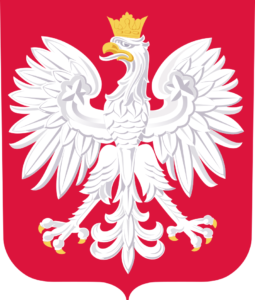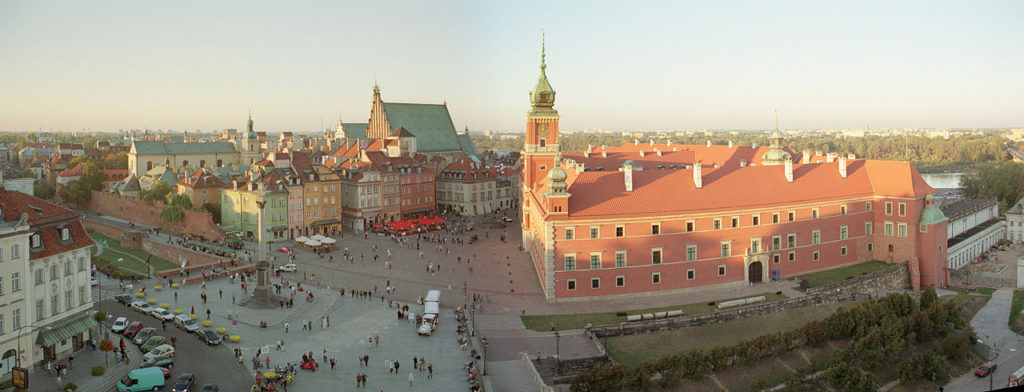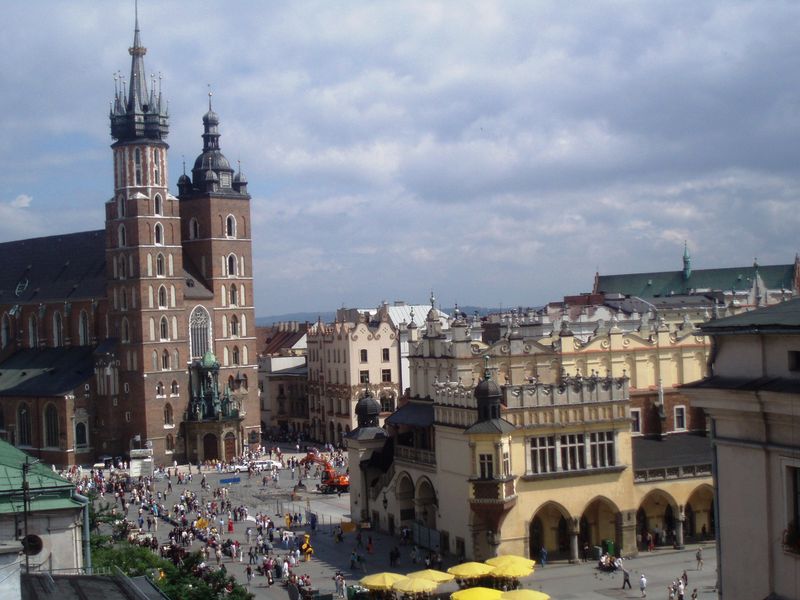 “We are fighters,” proclaimed our travel director Halina during her fascinating narrative as we rode through the gorgeous countryside from Warsaw to Krakow. The same sentence had resounded the previous day from our young city guide Carolina as she toured us through Warsaw. And then again, yesterday, we heard those same words repeated by our equally young guide in Krakow.
“We are fighters,” proclaimed our travel director Halina during her fascinating narrative as we rode through the gorgeous countryside from Warsaw to Krakow. The same sentence had resounded the previous day from our young city guide Carolina as she toured us through Warsaw. And then again, yesterday, we heard those same words repeated by our equally young guide in Krakow.
These are not empty words. The more I visit Poland, the more I am struck by how ferociously the Poles are determined to keep their country alive and free. Any perusal of their history reveals the legacy Poles have given the world by fighting for basic survival (including the period of 123 years when they were wiped completely off the map after the drastic giveaway of their nation to Russia, Prussia, and the Austrian Hapsburgs in the late 18th century).
If you want another example, consider Poland’s horrific fate when handed over as war booty to the Soviet Union, just as Poles were raising their heads from the decimation of World War Two. Forty years of Communist occupation as thanks for the unfathomable sacrifices they made? Now there’s a fate.

In fact, our group landed in Warsaw on exactly on the 80th anniversary of the events that set the Second World War in motion, namely the invasion of Poland by Nazis on September 1, 1939. The main streets were clogged with barricades as dignitaries from around the world gathered to commemorate that day. Fine speeches were given, and heartfelt grief by the German government was properly expressed. Still, is it any wonder that people in Poland live waiting for the other shoe to drop, no matter how stable the political situation seems to be?
This Old World Europe route that I regularly accompany as “professor on the tour” draws its participants for a specific set of reasons, often involving personal heritage (a parent, grandparent or great-grandparent came from the regions we will visit). Others join this tour because, despite traveling widely, they still have never seen this part of Europe, long hidden as it was behind the Iron Curtain. A majority sign up figuring that Prague and Vienna will be the highlights of the tour (and of course those are dazzling cities).
What they don’t expect is how hard they will fall for Poland. Poland, they presumed, would be primarily an interesting starting point, not a place where they will lose their hearts.
We are able to visit only three places in Poland: Warsaw, Krakow, and Oswiecim, known to the world as Auschwitz. What we experience in those three sites comprises everything that humanity is capable of: from the most glorious to the most despicable.
Visiting Auschwitz, or any of the German death camps (and it is terribly important to call them German death camps, albeit on Polish soil), leaves a lasting mark on one’s psyche. I find that repeated visits intensify that experience. Yet, the contrast of dark with light is part of what makes up the drama of every human life. And so, against the darkness of evil, torture, and mass death shine the light and inspiration we experience even in a place as dark as Auschwitz. If you need a ready example, investigate the actions of a Polish priest named Maximilian Kolbe, now a canonized saint. Or dip into the abundant literature of concentration-camp memoirs which, amidst the tortures recorded, generally weave stories of tiny actions of mercy and kindness.
People on the tour my age or older tend to carry an outdated image of Warsaw as a stretch of rubble, which it certainly long was following its vicious destruction by the Nazis in 1944. At best, they expect to find little beyond stretches of dull Soviet-style architecture from the 1950s, 60s, and 70s, all of which are robed in the color grey.
Instead, the city glitters before our eyes. Warsaw has been amazingly rebuilt, including a nearly exact reproduction of its historical center known as the Old Town. Modern skyscrapers, snazzy train station and shopping malls, endless hotels, and cosmopolitan restaurants bespeak a vital capital where things really are happening. I find myself thinking: if I were at the stage of my life where I wanted to start out, doing it here, in Warsaw, would be a very good choice.

Krakow simply steals everyone’s heart, almost within minutes of walking from our bus to our boutique hotel nestled just yards from the spacious historic square. Spacious? Vast is a better world. And every inch of the streets, parks, and cafes of Krakow is crammed with life.
In both cities, the air rings with youthful vigor. After all, people still have babies in this part of the world. Add the strongly Catholic tradition that treasures family and children to the patriotic hopes for Poland’s future and you create a situation that fosters young families. Then add in the tens of thousands of students who study in Krakow and Warsaw, as well as the young professionals making their careers in both cities, and you end up with a nation buzzing with vitality and promise.
Tomorrow we go to Budapest. No one wants to leave Krakow. Yet, we will be consoled by the glorious landscape that will unfold before our eyes as we cross the Carpathian Mountains. We will pass through Slovakia on the way, and experience a touch of that lovely country’s traditions with a lunch that can best be described as folk-inspired. Finally we’ll end the evening staring in awe at the Danube and her historic Chain Bridge (Széchenyi Lánchíd), a beautifully illuminated late 19th-century testament to the strength of the Magyars across the centuries.
Yes, Vienna and Prague also will be glorious. But our sense of discovery will be filled to the brim with unexpected riches long before we get there. Poland will be etched forever in our hearts.




Thank you for this. More martyr blood was shed in Poland in the 20th century. In addition to Kolbe, convert Edith Stein chose to die with her people. And before the invasion of Poland, the nun Faustina Kowalska had visions of Jesus and the Divine Mercy. Her convent was by the path where future Pope John Paul II labored in a rock quarry to avoid Nazis. He eventually made Faustina the first saint of the new millennium. Poland truly is God’s country of destiny.
You said it so beautifully, Adrienne. And one feels it on Polish soil. I doubt any place has had more occupation, destruction, and sorrow than Poland, and yet her spirit never wanes. Nor has her faith.
I kept a trip diary about the trip–you wrote poetry!
“Love Song to Poland” captures the soul and spirit of Poland. I sent your blog to two American friends of Polish heritage, one of whom has already visited Poland. She was directed by a wonderful guide to the area from which her parents immigrated, based solely on her Polish regional accent and the folk songs she learned as a child. Her deceased parents never spoke of why they left Poland, but she and her two daughters had to make the trip. For them, it was life-changing. I have no ancestry related to Eastern (Central!) Europe, and doubted that it would be possible for my visit to have the same impact. Just one more country to check off the list. But I came away profoundly affected by what I learned. Thank you for helping me see this amazing country with new eyes.